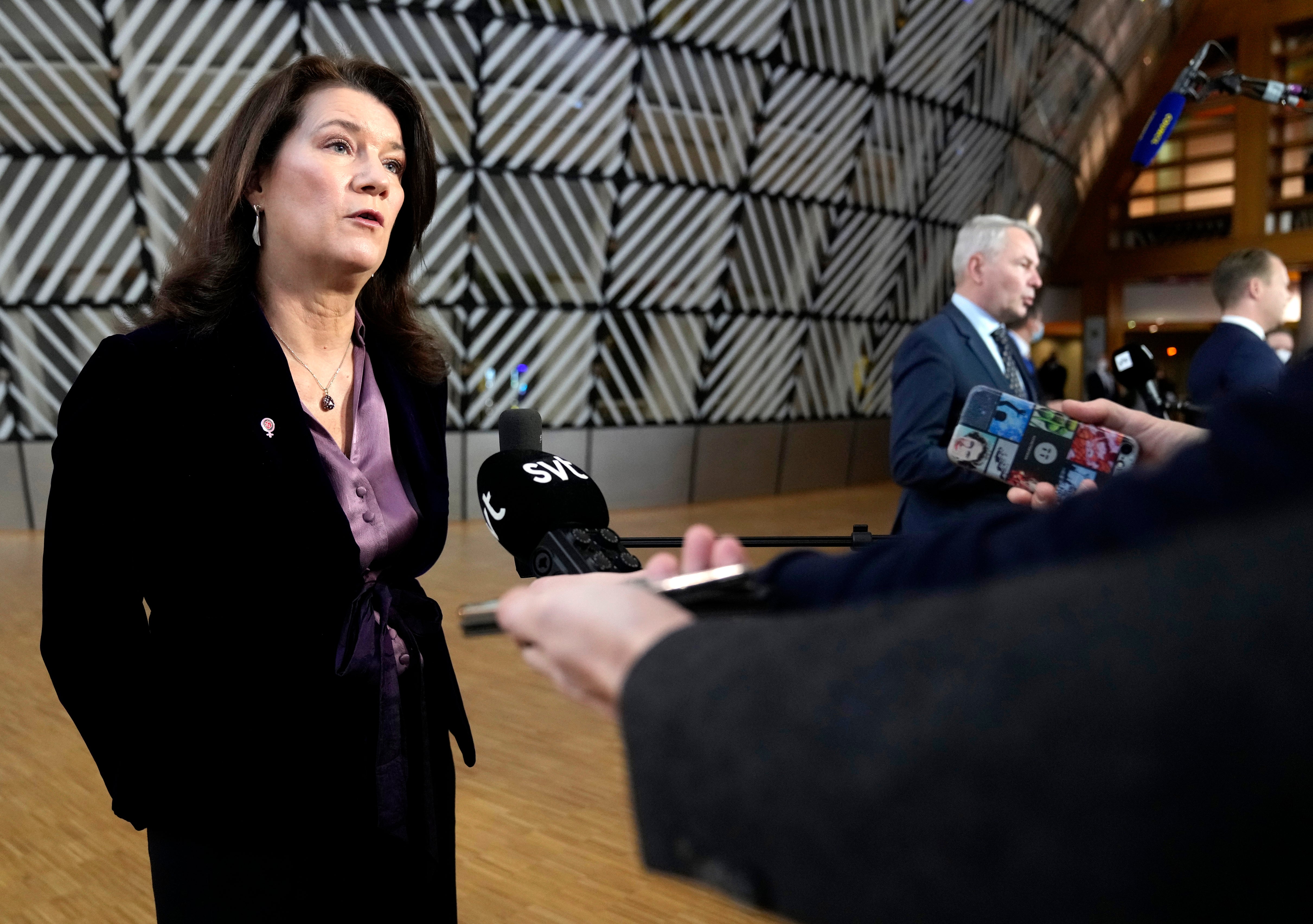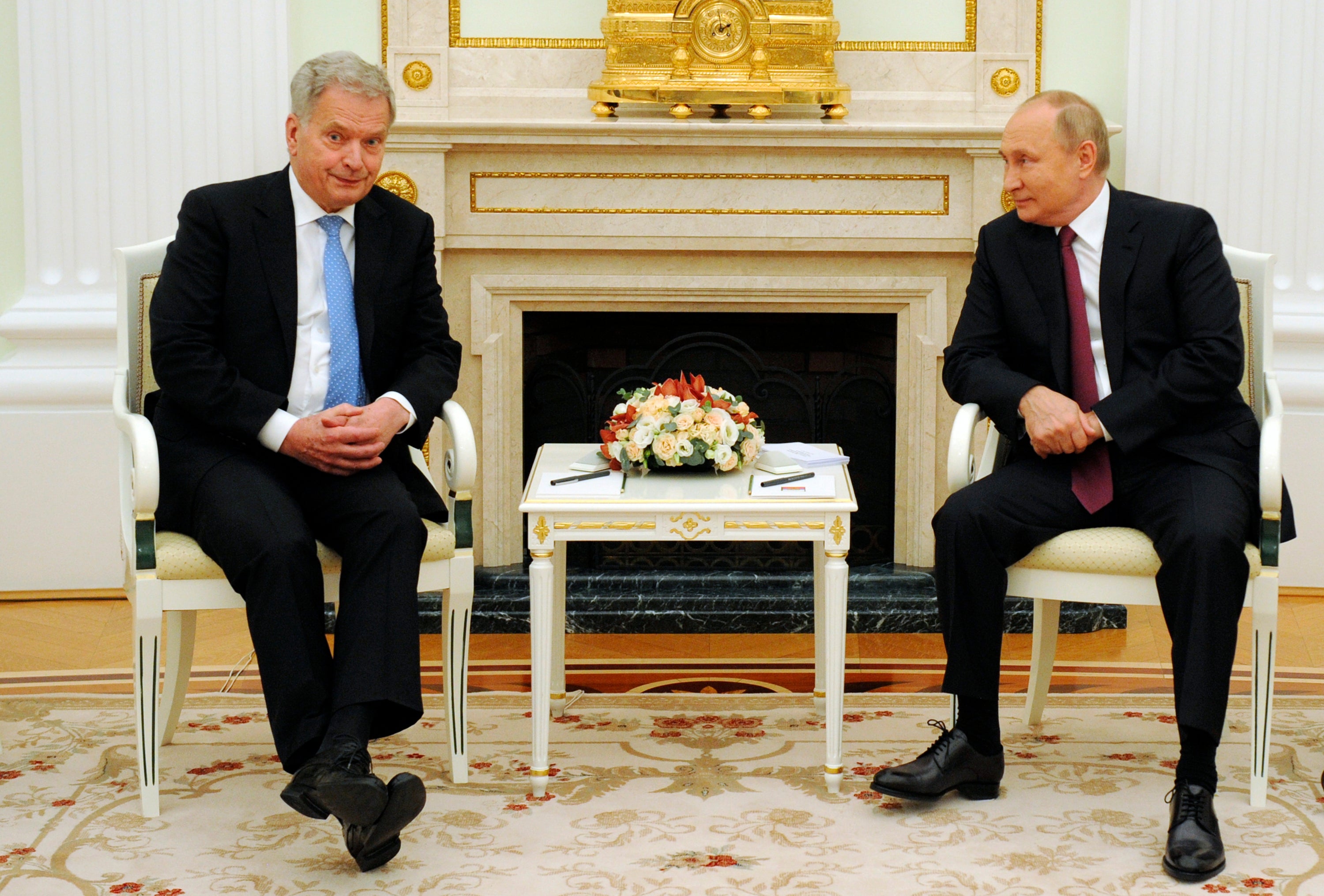Finland and Sweden get ready to announce Nato bids as Europe prepares for a reaction from Russia
Helsinki and Stockholm are expected to declare their decisions to apply for Nato membership in the next few days and experts have warned there will be an immediate response from Russia, writes Sofia Barbarani

Nato could soon have two new members as Finland and Sweden ready themselves to announce whether they intend to join the alliance, in a move that experts say will see further sabre rattling from Russia.
The two Nordic countries are expected to announce their intentions in a matter of days, bringing weeks of speculation to a head, with Finland set to make an announcement on Thursday followed by Sweden a few days later.
The public declarations will be followed by Finnish president Sauli Niinisto’s visit to Sweden next week, where it is widely believed the two countries will announce their decisions in a joint statement and formally kick off the membership process.
After decades on the sidelines of the alliance, Finland and Sweden were swayed seemingly overnight to move closer to Nato when president Vladimir Putin ordered Russian troops to invade Ukraine in February, a move that violently upended European security.
Russia has since struggled to make significant gains in Ukraine, fully withdrawing from the Kyiv area in early April and suffering major losses of troops and military equipment. This however is unlikely to stop it from stepping up its threats if Finland and Sweden do choose to join Nato.
“The Russians will rattle plenty of sabres, demonstratively move weaponry around in Kaliningrad or send naval vessels out into the Baltic to cause problems,” says Ian Bond, director of foreign policy at the Centre for European Reform.
Russia has hinted at possible military consequences in response to Finland and Sweden joining Nato, but it’s unlikely to amount to more than warmongering rhetoric. “Russia has its hands full with Ukraine at the moment,” adds Bond.
If they choose to join, they will each have to reach an internal consensus before lodging a formal application, which in turn will need to be ratified by all existing members. There is no official deadline for the procedure as it relies heavily on each of the 30 members making the time to approve the application, but it could take up to a year.
Obstacles could arise with Hungary and Croatia, experts have said.
“It’s been pretty clear that [Hungarian prime minister] Orban might be prepared to cause difficulties over this and in the case of Croatia, the Croatian president has said that he would veto it,” said Bond.
Sweden and Finland have said they are concerned that they could become vulnerable to Russian threats during this interim period during which they will not be covered by Nato’s Article 5, which states that an attack on one member is an attack on all.
But Nato members have already spoken out to reassure the two Nordic countries, with White House Spokesperson Jen Psaki recently telling a briefing that they would “find ways to address any concerns either country may have about the period of time between a Nato membership application and the formal accession to the alliance”.
“Nato has already signalled that it will find ways to guarantee Sweden and Finland’s security before they formally become members, during this intermediate period,” says Marianne Riddervold, a research professor at the Norwegian Institute of International Affairs. “And let’s not forget that both countries are members of the EU, which also has a mutual defence clause.”
Having previously demanded that Nato halt its expansion and roll back military deployment, it’s unlikely that Putin will stand by idly as two new members join the alliance.

“We might see other types of attacks from Russia, for example in the cyber domain. It might also use misinformation tactics to influence the ratification process in the Nato member states,” said Riddervold.
But with polls showing that more than 70 per cent of Finns and roughly 50 per cent of Swedes are in favour of joining, Russia’s tried and tested tactics of misinformation could be met with resistance this time around.
It remains to be seen what the two countries will announce this week, but if they do choose to join Nato their membership will be a “geopolitical gamechanger,” writes Judy Dempsey, a nonresident senior fellow at Carnegie Europe.
“It will strengthen Nato’s deterrence and defence by adding democratic, wealthy, and relatively strong military countries in a strategically vital region to the alliance.”






Join our commenting forum
Join thought-provoking conversations, follow other Independent readers and see their replies
Comments